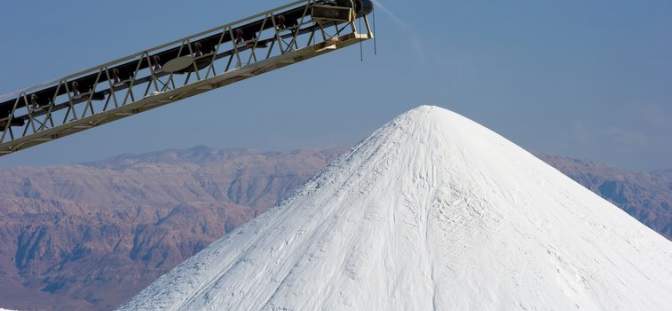Interview with Dr. Made Dana – leading fertilizer and plant nutrition expert
PHOSPHATE-PRICE has talked with Dr. Made Dana who is an expert in fertilizers and plant nutrition based in the Department of Soil Science, Faculty of Agriculture, Udayana University in Bali, Indonesia.
PHOSPHATE-PRICE: What is currently the main focus of your research?
Made Dana: I am now mainly focusing on the fertilizers that are made from sulfur and phosphorus. I also did my research in Australia where we tried to combine sulfur and phosphorus to create a new kind of fertilizer because we believe that it would be more effective for the use in acid soil, some of which can be found here in the Asian region. The suitability of the phosphorus for the use in fertilizers depends on the soil pH, which refers to the degree of soil acidity or alkalinity. Just to explain, if pH value is higher than 7, the solution is considered alkaline but if they are below 7, the solution is acidic. It is important to recognize that a change of just a few pH units can prompt significant changes in the chemical environment and sensitive biological processes in the soil, which will likely have a significant impact on the yield of the crops.
PHOSPHATE-PRICE: You mentioned the use of fertilizers combining sulfur and phosphorus. However, what are the prospects in Asia for the use fertilizers made from phosphate rock, of which Morocco is the leading producer?
Made Dana: Well, yes, Morocco is the biggest producer of the rock phosphate. Earlier, Nauru was also very important in this regard. Generally speaking, if the soil pH is high, there is no possibility to use the rock phosphates. Rock phosphate can generally be used in the acid soil. Well, some Asian countries actually have acid soil, like in Indonesia, for example. In West Java or in Kalimantan on the island of Borneo, some areas there are very acid, which means that the use of rock phosphate would be more effective there. But if the soil pH, or soil acidity, is 6.5 or 7, then the rock phosphate is not effective.
PHOSPHATE-PRICE: What is your assessment when it comes to the future development in the prices of fertilizers?
Made Dana: Especially developing countries are projected to use more fertilizers in the coming years, with urea being subsidized by many governments. Some recent studies have also stressed that agricultural sectors in developing economies still use a rather small amount of fertilizers per acre when compared with developed countries. This is why the prices of fertilizers and particularly of urea are unlikely to go down in the future – in fact they have been going and will go up. And it is also because the farmers in developing countries mostly use Double Super Phosphate or Triple Super Phosphate that, in my view, the prices of fertilizers will never go down. It has been mainly China, India, Indonesia and other developing countries that have driven the price of fertilizers up.
PHOSPHATE-PRICE: In recent years, many governments and other stake-holders have also tried to encourage the use of organic fertilizers. How does this trend fit into the whole picture?
Made Dana: First of all, I believe that more pressure will come because of the increasing population because the growing number of consumers especially in developing countries will demand more food. And there will also be the tendency to modify plants, in other words people will try to grow plants and crops that will produce higher yield. And this will, of course, require soil with more nutrients that will certainly come from larger volumes of more effective fertilizers.
Of course, there is this trend at the moment when many governments are trying to encourage the use of organic fertilizers but it is a well-known fact that organic fertilizers contain only a small number of nutrients. So, organic fertilizers cannot solve the problem of the necessity to produce more crops to feed the growing population. At the moment, there is a big hype about organic fertilizers, but we should really understand that we cannot only rely on organic fertilizers. Since the response of plants to organic fertilizers is very slow when it comes to mass production, we need to combine the organic fertilizers with industrially-produced fertilizers.
Dr. Made Dana is an expert in fertilizers and plant nutrition based in the Department of Soil Science, Faculty of Agriculture, Udayana University in Bali, Indonesia. He has done research in various problems related to the production and use of fertilizers in agriculture, including projects focusing on ‘Water Solubility and Physical Losses and Sulfur and Phosphorus from S-Coated Triple Superphosphates’ and ‘A Glasshouse Evaluation of Sulfur Fertilizer Sources for Crops and Pastures’.




